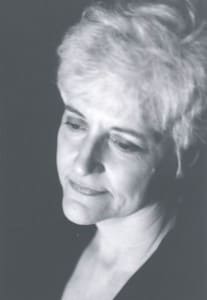

Solutio uses the purifying and dissolving properties of water to return to its most basic state the whitened ash left from burning away our ego-based illusion of reality. This dissolution works on the heart to release buried emotions.
Some people find it particularly difficult to acknowledge and explore their own needs and emotions. All of us, though, have elements of self-image fed by pride that form barriers to self-knowledge. As my Style Two client Doris said:
It’s been tough for me in the journey to discover behaviors I don’t like about myself. It was relatively easy to take a serious step away from trying to fix everybody’s life around me. The hard part is taking charge of my own life, loving and accepting myself and other people for who we are, and it’s O.K. if I’m screwed up.
The way I’m most different is with my daughter. I used to fix everything because I didn’t want her to hurt, I didn’t want her or her kids to do without. I enabled her to avoid reality, and I’ve not done her a service. So I’ve gently eased out of that, though it was a struggle. She’d say, “Mom, my daughter forgot this, can you run it by her school,” and I learned to say, “No, honey, I’m sorry, I’m late for work.”
If something comes in my face a couple of times and I think I’ve dealt with it, but it keeps coming back, I know I haven’t dealt with it! I’ve used journaling and meditating to help me get a clean slate, stay centered. It’s a journey and I know I’ll slip off the path, but not quite as deep anymore. Being able to recognize these patterns when they come up has been such a gift. I always know that no matter what happens, I’ll get through it.
Solificatio: A Vision of the Possible
Solificatio, making things real, represents moving from the lower to the higher mind. Our deep intention to change is not limited by rational thought and conscious goal attainment, but rather our thoughts are “enlightened,” literally transformed into light, a vision of what is possible.
A key aspect of going beyond apparent needs is realizing how we’ve been driven by unconscious patterns, pushing us toward goals that satisfy an ego-image, not our highest potential. Solificatio symbolizes helping our clients envision what’s possible beyond materialistic aspirations. Tom’s path as a Style Three demonstrates moving beyond the image of “looking good”:
All my life, until I started doing some real work on myself, it was “how things look” as opposed to how I really am. I was living a lie: “How do I fool people?” I wasn’t conscious of it, but my image, how people saw me, was more important than anything. I was a football and baseball coach early in my career, and I got a really choice spot in a choice school. Being a sports coach might be altruistic in helping students achieve something, but the raw motivation was to be out there in front–to get noticed, to have people say, “Oh, just look at him! He’s a great guy!”
It was exciting, challenging, frustrating. I loved being a leader, putting my ideas into practice. It was also an area where I could have self-doubt and pretend I didn’t. I got the conflicting message as a child that I was supposed to be good enough and smart enough to become a doctor, a lawyer, or some other professional, while something in me longed to play music at a very early age. My parents discouraged me from studying a musical instrument because “they’d spend money on lessons and I wouldn’t be good enough and would quit.”
I did later sing and perform, initially to move through some of those inhibitions, and then I created a whole work around it for others, teaching them to feel the fear and do it anyway… to move through and let the experience teach you something different from what’s in your head. I still might look good to others, but I’m getting away from the image of looking good, and just doing what I love to do. At 61 I’m also moving into community work, volunteer efforts, and this feels good and right. When I was focused on how I looked to others I was pretty much of a loner, but more and more I really enjoy sharing and working with others.
Nigredo, The Darkness Before the Dawn
Nigredo—separating the extraneous from the real. This aspect of alchemy means putrefaction or decomposition, all ingredients cleansed and cooked to a uniform black matter, representing the moment of maximum despair, the dark night of the soul, the dying of inner chaos and doubt, discovering what really matters, what is authentic essence.
On my first long car trip with a new GPS, I felt I had my personal traffic controller, especially as the sun began to set and I couldn’t see the road signs to my son’s apartment in an unfamiliar city. What a relief, when driving in the dark, to hear a voice saying “in 100 feet, turn right.”
Without a map or GPS when seeking a new destination, our tendency is to either succumb to panic or turn back to more familiar roads. Likewise, the journey of transformation is not rational or linear, there is certainly no GPS, and it can take heroic effort to stay present and open to the change.
Carolyn Myss calls this spiritual madness. When we help our clients stay centered and endure the madness, they begin to hear their internal GPS, their own voice of guidance. And Myss endearingly adds, “How do you expect the answer to be given to you? It’s not going to come in a letter!”
Nora, Style Four, describes her emerging voice of guidance:
I think in the process of our evolution we have things that block us. Leonard Laskow speaks of “treasured wounds” and beliefs. So for me the exploration is seeing how I’ve held things that kept me from moving forward. One of my core issues has been not feeling I’m good enough. Early on I had so little sense of myself that I’d go away in my head. Many of my struggles were in learning to get past that, to stay in real time, to stay in the midst of whatever was scaring me, which was usually a threat proving there was something terribly wrong with me.
I have the image that along the way you move from pain and toward possibilities. There have been times when I had clear choices as to whether I was going to go on or not. I wasn’t suicidal, but I thought I’d go crazy. I’d lie in bed and feel there was a battle between light and darkness inside, and consciously choose light. The first few years of my marriage were so hard, and any number of times I felt like walking. But I knew I needed to stay with it, to learn to love, even though there were problems way over my head. And I’m glad I stayed with it.
There have been a number of lessons for me. One is to trust that what and where I am right now, without any exaggeration or drama, is enough. Another is that life without drama isn’t mediocre or bland, it’s living from the center. It wasn’t the events or people in my life, it was the emotional energy I gave to them that was the problem. Drama pulled me away from my heart.
Today is a good day to let go of the baggage getting in the way of my being in my heart. For this, I will gladly leave the drama behind.
Separatio, Dissolving Negative Beliefs and Emotional Blockages
Separatio, separating wholes into components, separating the essence of dissolution from its wastes. This refers to “dismembering” the personality, retrieving the energy released by dissolution of negative beliefs and emotional blockages.
In Thoughts Without a Thinker Mark Epstein shares an encounter between a Zen master and Kalu Rinpoche, a Tibetan monk. This was intended to be dharma combat, the clashing of great minds. The Zen master, obviously ready to parry any response, held up an orange and asked repeatedly “What is this?” “What is this?” After several moments of silence, the Tibetan whispered to the monk beside him, who then translated: “Rinpoche says, ‘What is the matter with him? Don’t they have oranges where he comes from?’”
Some people rely on intellect to make sense of the world and their existence in it. It’s important as a coach to meet them where they are, inviting them to question their own assumptions, but without being drawn into dharma combat. For example, John (Style Five) began our work together with intellectual fervor, clearly articulating his desire to “become aware of my assumptions, biases, and limitation and begin consciously choosing different assumptions and points of view.”
Notice, in his self-description below, how John first had to access his beliefs through intellectual awareness, and only gradually became aware of his emotions:
A deep interest in Jung came in realizing this was a fascinating way to understand myself and others. Jungians say you need to have some contact with your unconscious to develop the axis between your ego and your inner core. Having a mental framework has legitimized it for me. I like the whole intellectual idea that we’ve been living in some kind of unconscious activity, and we try to get out of being “asleep.”
When my marriage ended it was a blow to my self-esteem. Specifically, I realized I didn’t understand what feelings were all about. My wife accused me of not having feelings, of being too logical, and I didn’t know what she was talking about. Finally, I realized intellectually I needed to do something, and that’s when I sought help. I had to accept all this horrible unconscious stuff, and finally realized I really did have feelings. I realized I was just thinking too much. Now I reveal more when I’m comfortable with someone, noting, for example, “I’m probably too much in my head right now.”
I see this whole process as a Hero’s Journey. You receive a call, you engage in the search, then there’s a struggle, you have a breakthrough, and you return – somehow changed. One way the call has been particularly clear is with a university course on personal development I’m now teaching. After I retired, I was just living my life when I got a phone call from an old friend who was leaving town and asked me to take over for her. It appealed to something inside of me at an intuitive level, not verbal, and I decided to try it out. I cannot believe the response of people taking this course – the warmth, and love. It’s been great, wonderful! It’s taken me outside of my house and outside of myself.
Mary Bast, PhD, coach and coach mentor, is co-author of the first Enneagram coaching book – Out of the Box: Coaching with the Enneagram – and author of several coaching workbooks. More information at www.breakoutofthebox.com.

